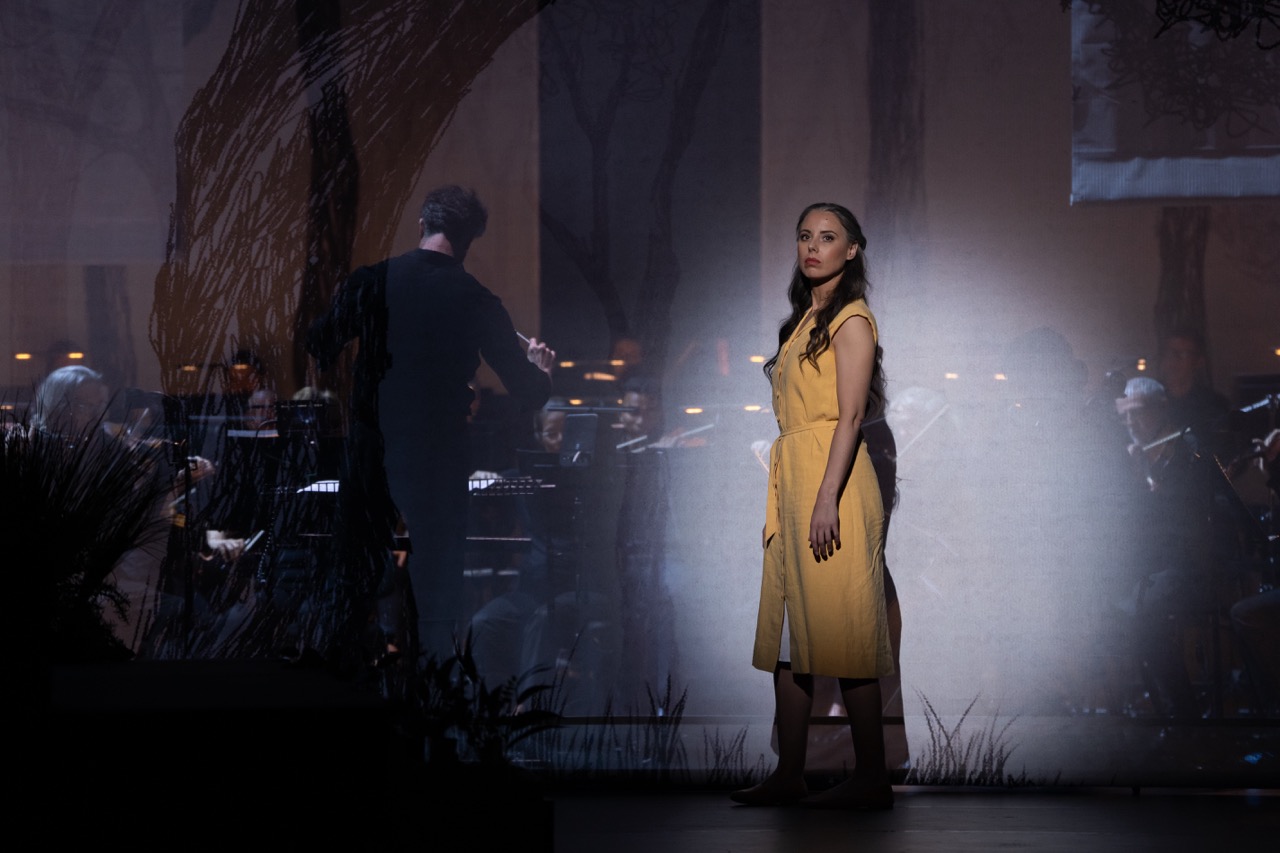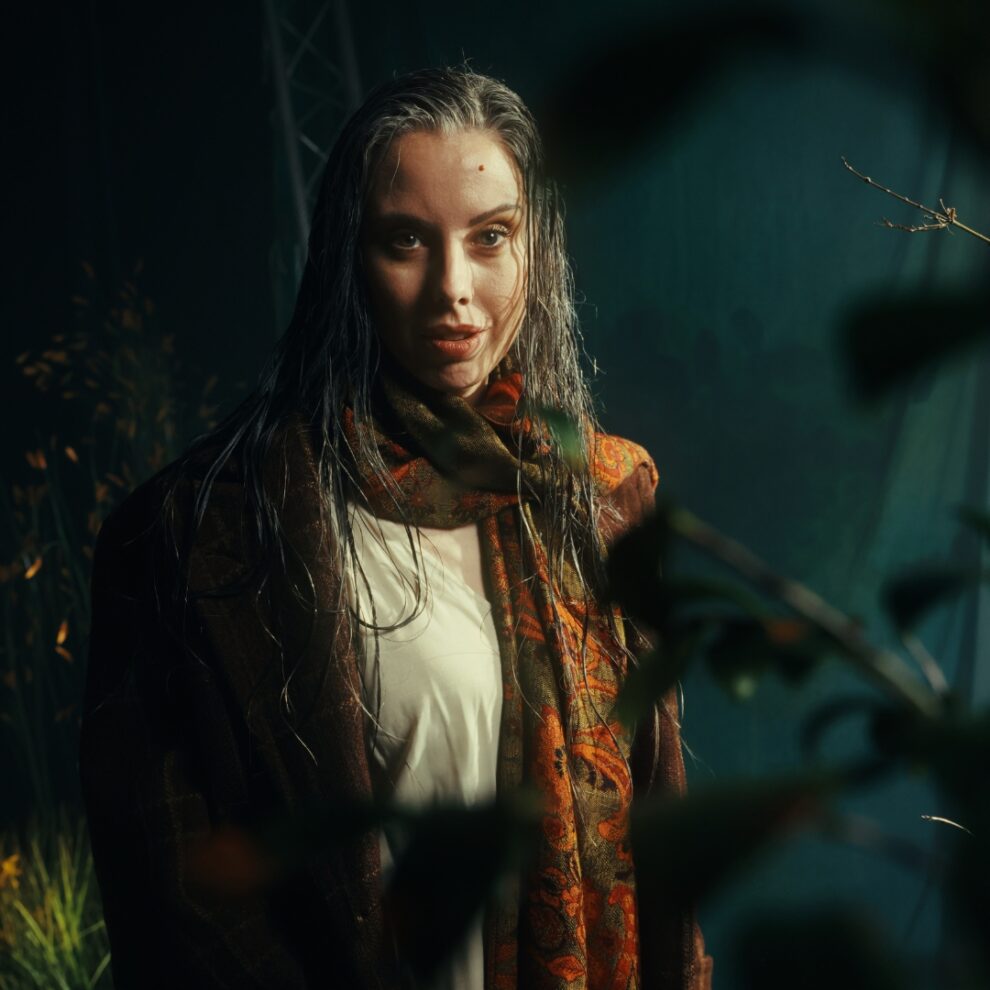
Interview: Desiree Frahn on capturing Janáček’s tragic heroine
Ahead of our production of Leoš Janáček’s Katya Kabanova, soprano Desiree Frahn describes the universal relatability of her tormented character, and learning to sing in Czech.
Katya Kabanova tells the story of Katya, played by Desiree Frahn, who falls deeply in love with another man while navigating the oppressive household she shares with her cruel mother-in-law.
Set in a stark, Russian village, the opera oscillates between the light of passionate romance, and the darkness of moral accountability. The score is lyrical, peppered with Slavic folk music, and sung in Czech – a language unfamiliar to many opera singers, including Desiree.
In this interview, she explains her approach to singing in a new language, the journey of her character, and why all of us can empathise with Katya Kabanova’s heavy themes.
“We are all, at some point, torn between what we want, what we need, and what we believe is right — or best — for ourselves and others,” she says.
“That tension is especially powerful when it comes to love.”
Tell us about your character
Katya is a deeply complex and tragic character. She was once a whimsical and carefree young woman, but she’s now trapped in a stifling, childless marriage within the rigid confines of the merchant class.
Her husband, Tichon, is not unkind — he’s polite and loves her in his own way — but he is passive and emotionally unavailable. He often escapes the oppressive household run by his domineering mother, Kabanicha, using drink and business trips. In his absence, Katya is left alone to endure the cruelty of Kabanicha, who torments her out of jealousy and resentment. Kabanicha sees Katya as a rival for her son’s affection and asserts her control by belittling and bullying her.
Katya lives in emotional and spiritual isolation. Her only sources of light are the solace she finds in church and prayer, and a forbidden love she harbours for another man. She is torn between her strong sense of moral duty and a desperate longing for passion and freedom.
There’s a powerful line from the play that encapsulates her reality: “When a woman’s married here, she might as well be buried.”
That sentiment really defines Katya’s experience — she is a woman suffocated by her circumstances, desperately reaching for some form of life, even if it means destruction.
How would you describe Katya’s journey across the opera?
Katya’s journey is one of inner conflict, between desire, duty, and conscience. At the beginning of the opera, she’s already emotionally isolated, trapped and feels a dark end coming for her if she continues this life. She longs for beauty, meaning and love, but her world offers no space for that.
As the door is opened to the possibility of meeting (the other man) Boris, she experiences a brief, intoxicating glimpse of freedom. She knows the weight of this decision. Her guilt isn’t just a burden — it reveals how deeply moral and spiritual she is. She doesn’t take her choices lightly, and that makes her turmoil all the more painful. Katya knows neither path before her will offer true happiness, but one may offer her the strength to go on.
As the opera progresses, her internal conflict intensifies. Torn between her moral beliefs and her need for connection, she’s pushed to the edge. By the end, she sees no path forward that doesn’t destroy her.
Katya’s journey is tragic not because she is weak, but because she feels so deeply. Her fate is sealed not by her actions, but by the world’s refusal to forgive them.
Have you performed a Janáček opera before? How will you approach singing in Czech?
Yes, I have! I played the Vixen in The Cunning Little Vixen, although that particular production was in English. So, Katya Kabanova is my first time performing Janáček in the original Czech.
Czech is a beautiful but unfamiliar language for many singers, so working with a language coach is absolutely essential, even with the excellent online tools now available. My first step is always to get a feel for the language: exploring the sounds, especially consonants and vowels that don’t exist in English or the standard operatic languages such as French, German or Italian.
From there, I work through the libretto as spoken text, almost like dialogue — ideally with a coach — to not only understand pronunciation, but also the natural emphasis, rhythm and emotional tone of the words.
Then, I learn the text with the composer’s musical rhythm. The notes themselves actually come last for me! It’s all about building a strong linguistic and emotional foundation so, when I do sing, the words feel honest and alive.

What do you most enjoy about Janáček’s music?
I love that Janáček’s operas are through-composed. He writes music that flows like natural speech — there are no set arias or repeated choruses, no backtracking. The story moves forward with the music, and the score adds emotional depth and nuance to the text that wouldn’t be possible on its own. It feels like heightened dialogue, shaped by the characters’ inner lives.
I also really enjoy how his operas are often grounded in a specific musical world. In The Cunning Little Vixen, we hear the soundscape of the natural world — chirps, rustlings, birdsong. In Katya Kabanova, he draws on Slavic folk music, and you can hear both jaunty and haunting folk-inspired melodies woven throughout the score. They give the piece a deep sense of place and tradition, while still feeling incredibly personal and expressive.
At the heart of the opera is a conflict of desire. Do you expect audiences to relate or engage with this subject?
This is a universal and timeless theme. As long as we have desires, needs and emotions, there will be conflict. We are all, at some point, torn between what we want, what we need, and what we believe is right — or best — for ourselves and others. That tension is especially powerful when it comes to love.
Katya’s situation may be specific to her time and culture, but the emotional core is something I think everyone can recognise. Whether it’s the longing for freedom, the pain of repression, or the fear of following your heart, there’s something in her journey that reaches into us.
I believe every audience member will see a reflection of themselves somewhere in this story — perhaps in ways they expect, and perhaps in ways they’d rather not admit. That’s what makes the opera so moving. It holds up a mirror to our inner lives.
